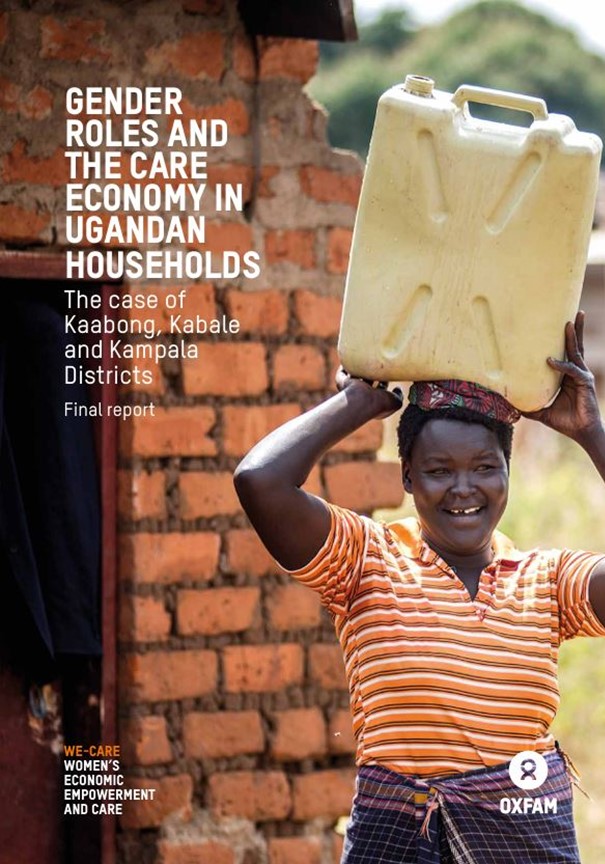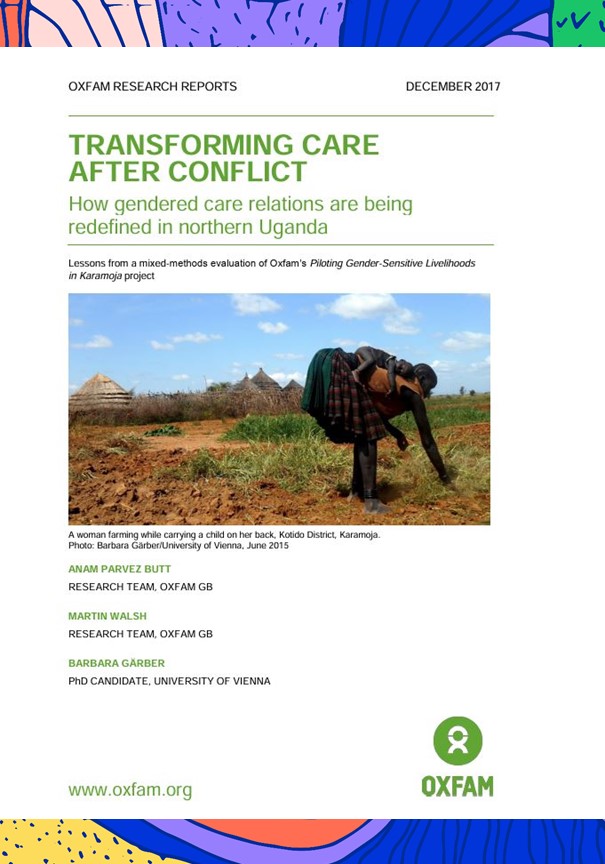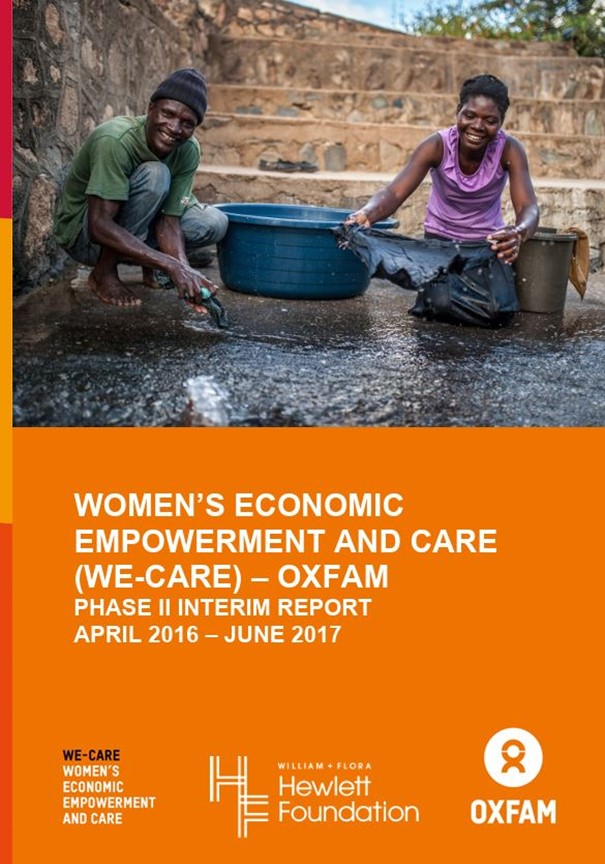Gender roles and the care economy in Ugandan households: The case of Kaabong, Kabale, and Kampala districts
The report makes recommendations for the Ugandan government and relative authorities on how they can recognize, reduce and redistribute care work through policy changes, labour-saving devices and technology, better infrastructure and the provision of care services.




